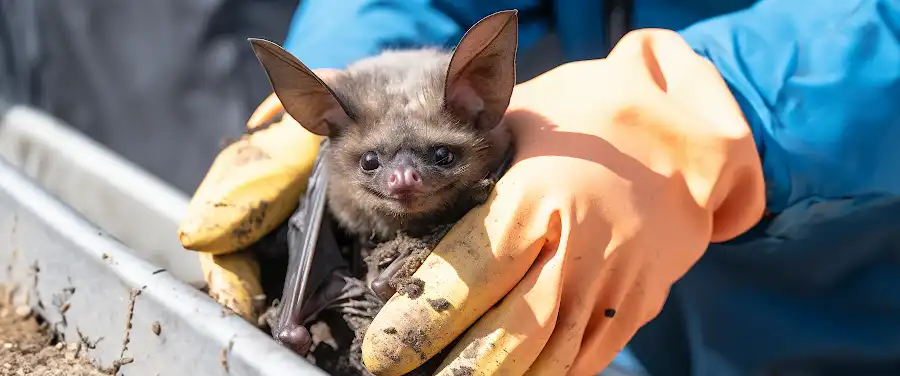
Who hasn’t had a moment of delight watching a squirrel scamper up a tree or sit adorably munching on an acorn? These little creatures are a well-known sight in our parks, gardens, and sometimes, they even make it into our attics. However, despite their cute, bushy-tailed facade, squirrels can cause more than a few problems if they decide that ‘home sweet home’ ought to include your house. And hey, it’s not just about the gnawed wires, shredded insulation, or decimated bird feeders. There’s something even more disturbing to worry about. Unwanted health risks.
Just imagining the health risks associated with squirrels might be enough to give you the shivers. And rightfully so. These seemingly harmless animals, are recognized as pests, carrying a range of diseases that can potentially put your health in jeopardy. It is important to note that not all squirrels would cause health-related issues, but wouldn’t you rather be safe than sorry?
This article will explore the potential health risks squirrels might bring with them, especially when they have decided to squat in your property. Remember, knowing is half the battle, and the nitty-gritty information in this article will make you a wiser and safer homeowner or occupant. Get ready to dive in and become an expert on all things related to the curious case of squirrels and pest-related health risks. Trust us, it’s going to be an eye-opening experience, like exploring a completely uncharted part of the map! Now, let’s get down to answering that pressing question: What makes squirrels a potential health risk?
How likely are humans to contract diseases from squirrels?

The chances of humans contracting diseases from squirrels can vary greatly, depending on several factors. The risks usually arise when humans inadvertently get exposed to squirrel feces, urine, or come into direct contact with an infected squirrel. Let’s delve into the details of the disease contraction and associated risk factors.
Factors That Increase the Risk
The risk of disease transmission increases with factors such as:
As rare as it may be, there have been reported cases of humans contracting diseases from squirrels. In 2017, Colorado reported three human cases of plague, all linked to exposure to sick squirrels
What Role Do Squirrel Parasites Play in Transmitting Diseases?
Squirrels, like most animals, can be hosts to a variety of parasites, which in turn can pose significant disease risks to humans and pets. Fleas, ticks, and mites are common external parasites found on squirrels. They can act as vectors, transmitting diseases from squirrels to humans.
Flea bites are known to transmit diseases such as tularemia and plague. It’s not the squirrels themselves, but these tiny parasites that can convert a seemingly innocuous squirrel encounter into a health hazard.
The risks associated with parasites are more pronounced if you are bitten by one or if they happen to infest your living area. It’s important, therefore, to maintain a safe distance from areas frequented by squirrels.
In conclusion, while the likeliness of humans contracting diseases from squirrels is not high, it is not impossible. Awareness, precaution and good hygiene practices are key for prevention.
As we have seen, squirrels can pose health risks, but are they a threat to your property too? Let’s explore this aspect in the following section- ” What damage can squirrels cause to your property?“.
Conclusion
Squirrels, like most animals, can be hosts to a variety of parasites, which in turn can pose significant disease risks to humans and pets. Fleas, ticks, and mites are common external parasites found on squirrels. They can act as vectors, transmitting diseases from squirrels to humans.
Flea bites are known to transmit diseases such as tularemia and plague. It’s not the squirrels themselves, but these tiny parasites that can convert a seemingly innocuous squirrel encounter into a health hazard.
The risks associated with parasites are more pronounced if you are bitten by one or if they happen to infest your living area. It’s important, therefore, to maintain a safe distance from areas frequented by squirrels.
In conclusion, while the likeliness of humans contracting diseases from squirrels is not high, it is not impossible. Awareness, precaution and good hygiene practices are key for prevention.




